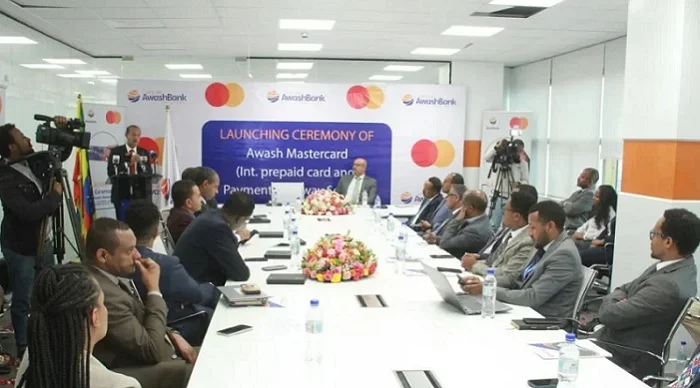Mastercard, a global leader in payment technology, has forged a strategic partnership with Awash Bank to introduce pre-paid cards in Ethiopia.
This collaboration marks a significant milestone in advancing financial inclusion and modernizing payment systems within the country.
Advancing Financial Inclusion: Empowering the Unbanked
Ethiopia, like many developing nations, faces challenges in providing financial services to all its citizens. A large portion of the population remains unbanked, lacking access to basic financial tools and services. By partnering with Awash Bank, Mastercard aims to bridge this gap and empower the unbanked segments of society.
Pre-paid cards offer a convenient and secure means of conducting transactions, even for those without traditional bank accounts. They enable individuals to store funds electronically, make purchases online and in person, and withdraw cash from ATMs. This initiative will particularly benefit rural communities and underserved populations, providing them with greater financial autonomy and stability.
Read also: Ethswitch, Mastercard digitize Ethiopian payments
Moreover, pre-paid cards can serve as a stepping stone towards broader financial inclusion. As individuals become familiar with digital payment methods, they may be more inclined to adopt other financial products and services offered by banks, thereby deepening their engagement with the formal financial system.
Modernizing Payment Systems: Driving Economic Growth
The introduction of pre-paid cards in Ethiopia represents a significant step towards modernizing the country’s payment infrastructure. Historically, cash has been the primary mode of transactions, presenting various challenges such as security risks, inefficiencies, and limited transparency. By promoting electronic payments through pre-paid cards, Mastercard and Awash Bank are laying the foundation for a more efficient and transparent financial ecosystem.
Electronic payments offer numerous advantages over cash transactions, including enhanced security, reduced transaction costs, and improved record-keeping. Businesses can streamline their operations by accepting digital payments, thereby accelerating the pace of commerce and contributing to overall economic growth. Furthermore, the shift towards electronic payments can facilitate Ethiopia’s integration into the global economy, making it more attractive to foreign investors and fostering international trade partnerships.
Empowering Individuals and Communities: Unlocking Economic Opportunities
Beyond the macroeconomic benefits, the introduction of pre-paid cards has the potential to transform the lives of individuals and communities across Ethiopia. Access to formal financial services empowers individuals to save, invest, and plan for the future effectively. By digitizing financial transactions, Mastercard and Awash Bank are enabling people to overcome traditional barriers to economic participation and unlock new opportunities for prosperity.
Moreover, pre-paid cards can play a vital role in advancing social welfare initiatives and humanitarian efforts. By distributing aid and social benefits electronically, governments and humanitarian organizations can ensure more efficient delivery and reduce the risk of fraud and mismanagement. This targeted approach to financial assistance can have a tangible impact on poverty alleviation and socio-economic development.
The partnership between Mastercard and Awash Bank to introduce pre-paid cards in Ethiopia represents a significant milestone in advancing financial inclusion, modernizing payment systems, and empowering individuals and communities. By leveraging innovative financial technologies, we can create a more inclusive and prosperous future for all Ethiopians.
